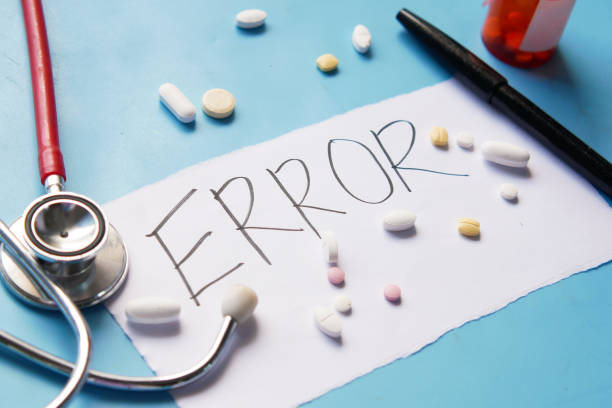Owning a community pharmacy is much more than just filling medications. It involves numerous tasks throughout each day that keep you and your technicians on your toes, such as inventory management.
Inventory doesn’t always match up with the demand of your customers. This leads to stranded products on the shelves, and most are beyond your control. Some patients may need to switch the strength or dose of their maintenance medications over time. Or there may be managed-care issues causing a PBM to switch from one covered drug to another. A simpler cause may be that a manufacturer’s packaging leaves you with unused products.
Whatever the reason, you’ll need to decrease the quantity of unsalable products that are in your inventory with a third party in order to return the expired products to your manufacturer or wholesaler for credit. The least costly approach is to return the unsold products, near or after their expiration date, every quarter. And if the product is in its original container, it may be eligible for credit as long as it’s properly returned in a timely manner.
Products that may be eligible for credit:
- Unopened products that are sealed in original manufacture packaging
- Some manufacturer policies (mostly branded products) allow opened containers or “partials” as eligible products
Products that are not eligible for credit:
- Injectables, ampules, and cartridges
- Damaged products
- Partial products whose packaging has been opened with some of the pills or packaged contents dispensed
- Products not in original packaging or have been repackaged
- Products not in their original manufacturer container (e.g. re-packs or medication that’s been placed in a prescription vial)
- Products too far past their expiration date (eligibility periods for returns range from 3 to 12 months after product expiration)
- Products too far within their expiration date as deemed by manufacturer policy (i.e. expiration is too far in the future)
- Products sold by manufacturer as nonreturnable
- Products with a non-returnable lot number
- Products that are a sample or complimentary item
- Products purchased from unauthorized distributors
When handling returns, identify your unsalable pharmaceutical products by looking at the products on the shelves, in the vault, and in the refrigerator. Inspect them carefully and check expiration dates. This should be done quarterly.
Partially dispensed products or those with the most recent expiration dates should be arranged at the front of the shelf. You can also use color-coded tags. They work well and make it easy to recognize a product’s expiration date.
Separate the products to send to the returns company into groups (short-dated, expired, or recalled products) for return processing. Then, check out each company’s web portal for a workflow on how to create an inventory of products and the steps to prep and ship products back to their warehouse. If you’re really lucky, they’ll provide onsite resources to process the returns on your behalf.
The whole process sounds like a lot of work for pharmacies, and to be honest, it is. That’s why pharmacy returns companies exist. They can help navigate the challenges of returning drugs for credit and help you get the most out of your pharmacy’s expired products.
“I would say that most pharmacies don’t have the manpower to do their returns themselves,” said Adrienne Vandergriff, Vice President, Sales & Marketing at Return Solutions. “It’s a lot of work on a pharmacy’s part. They would have to find out where to send each product for each manufacturer, though a lot of them have processors that you submit to. So, pharmacies would have to ship product to each manufacturer individually.”
It can also be difficult to determine if a manufacturer will issue a credit for a product if you don’t have the manufacturer policy.
“A lot of times, they won’t even accept returns from an individual pharmacy,” said Vandergriff. “It has to go through a third party.”
If you can, avoid unsalable returns at all costs. When you have an open container of generic medication, fill as many scripts as you can before unsealing a new one. Partial generics may not be eligible for credit. Also, stay on top of prescriptions that are not picked up by customers. Return an unclaimed drug to its original container if your state’s pharmacy regulations allow it.
You can regain losses by minimizing returns wherever you can by keeping up with your pharmacy inventory management. If the process is too time consuming, consider partnering with a pharmaceutical returns company. That way, you’ll sleep well at night knowing that the right products are returned, properly disposed of, and credited in a timely manner.
On the hunt for a returns company?
Here are some things to ask before you decide:
- Is the company reputable?
- Do they have recommendations or partnerships with industry leaders you trust?
- Do they require you to sign a contract, or can you end the service at any time?
- Does the company understand environmental, legal, and economic ramifications of drug returns?
- Is the company trustworthy?
- Does the company have the industry relationships necessary to get you the most for your returns?
- Will the company give you the value you deserve for the price you want to pay?
Working With a Returns Company
Pharmacies typically have two options for returning expired drugs when they’re working with a returns company: mail-in or on-site service.
Mail-in service
Expired drugs are removed from the shelves by your staff. Then, they inventory them online and ship them to the returns company.
This option is usually less costly, but you have to pull the expired drugs from your stock yourself. It’s not an easy job, and it’s easy to miss some of the expired products. This means there will be some expired bottles left on your shelves. By the time you find them, they’re too old to return for credit.
“Our mail-in service is located on our website, drugreturns.com,” Vandergriff said. “Customers can create returns, inventory items, and print the necessary forms and prepaid UPS shipping labels on their own schedule.”
On-site service
A representative from a returns company visits your pharmacy and scans your prescription shelves. They look at the expiration date on each product and remove those that are expired. Then, they inventory them and arrange for them to be picked up by a common carrier the following business day.
This option is a bit more expensive, but it saves your staff time so they can keep helping customers or take care of other tasks in your pharmacy.
From the Magazine
This article was published in our quarterly print magazine, which covers relevant topics in greater depth featuring leading experts in the industry. Subscribe to receive the quarterly print issue in your mailbox. All registered independent pharmacies in the U.S. are eligible to receive a free subscription.
More articles from the September 2023 issue:
- All Eyes on EG.5.1
- Your Extraordinary Front End
- Hearing Aids vs. PSAPs
- AI Chatbots in Health Care
- Medication Adherence Programs
- DSCSA Deadline Looming
- DIR Rule Changes
- Unsalable Products
A Member-Owned Company Serving Independent Pharmacies
PBA Health is dedicated to helping independent pharmacies reach their full potential on the buy-side of their business. Founded and run by pharmacists, PBA Health serves independent pharmacies with group purchasing services, wholesaler contract negotiations, proprietary purchasing tools, and more.
An HDA member, PBA Health operates its own NABP-accredited warehouse with more than 6,000 SKUs, including brands, generics, narcotics CII-CV, cold-storage products, and over-the-counter (OTC) products — offering the lowest prices in the secondary market.












